Eye health, social support services and new app in focus at PHS 2019
Published: 14 Oct 2019
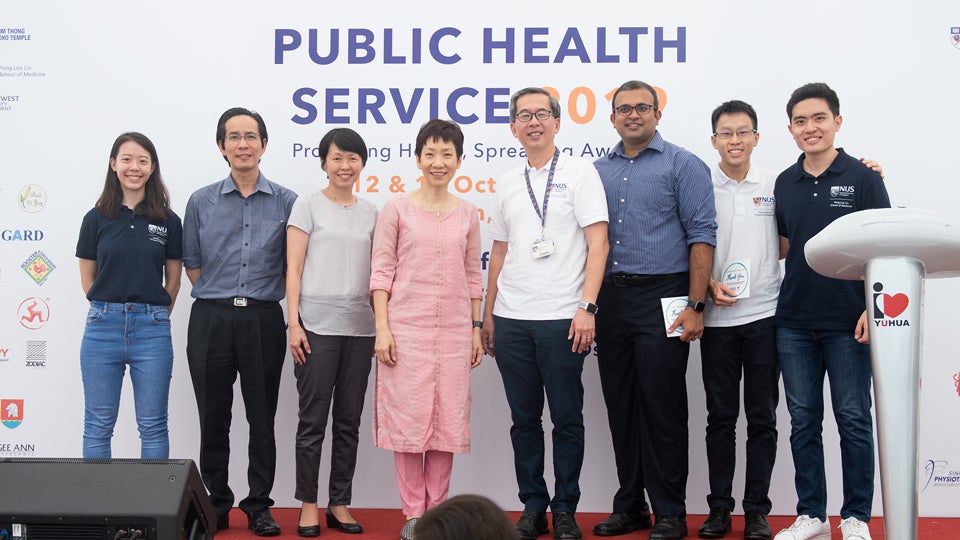
Organised by the NUS Medical Society, the student body of the NUS Yong Loo Lin School of Medicine, the Public Health Service (PHS) is a student-led preventive health project. PHS is held annually and involves Singapore’s three public healthcare clusters – the National University Health System, the National Healthcare Group and SingHealth. This year, PHS 2019 aims to reach more than 31,000 households through the annual health screening in collaboration with the Health Promotion Board.
The community screening this year – the 14th since it began in 2004 – was graced by Minister for Culture, Community and Youth, Ms Grace Fu.
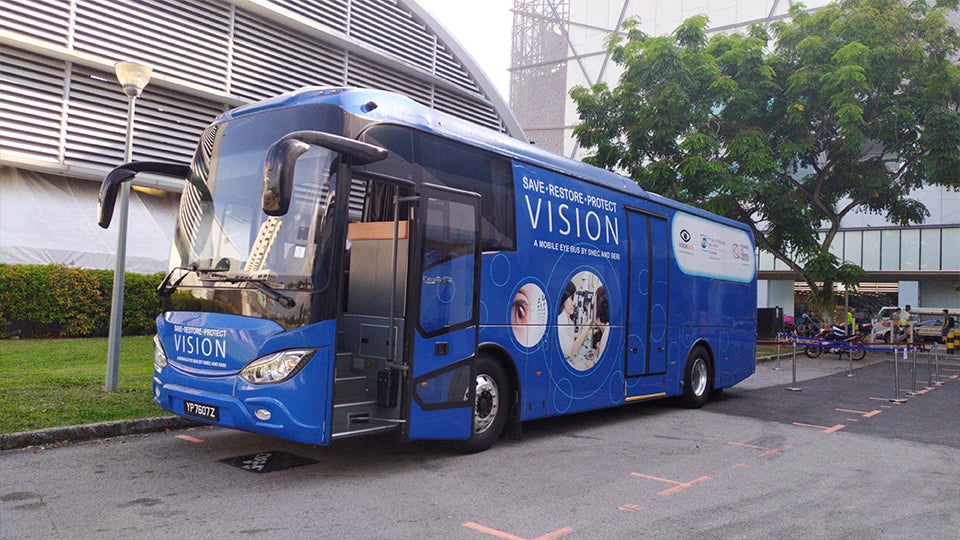
For PHS 2019, residents aged 60 years old and above were screened for eye problems such as glaucoma, cataracts, diabetic retinopathy and age-related macular degeneration at a mobile eye clinic on wheels that was stationed on site at the Canopy @ JLink.
The mobile eye clinic boosted eye screening services available at PHS and focused on checks for basic visual acuity and refractive errors. Participants with abnormal results would be contacted for a follow-up appointment for a more extensive eye screening at a Community Club and referred to a specialist institution where necessary.
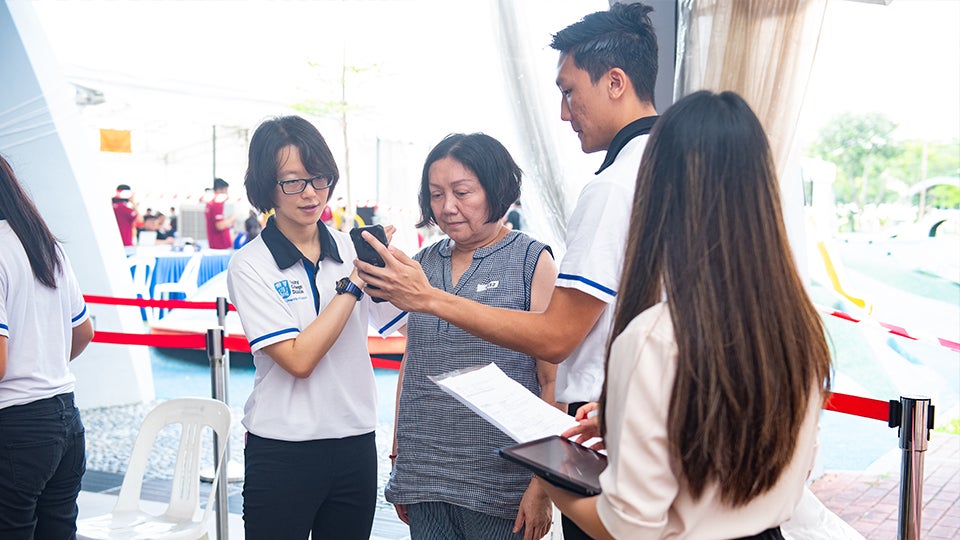
Leveraging technology to improve the screening experience this year, a new PHS Application made its debut this year at PHS to help facilitate the screening flow. It provided participants with a health report immediately after screening to help them better understand the screening modalities they had gone through, and also areas in which they could improve their health. Participants would be referred to the relevant partners accordingly for personalised lifestyle advice, and also referred to a healthcare system for necessary follow-ups.
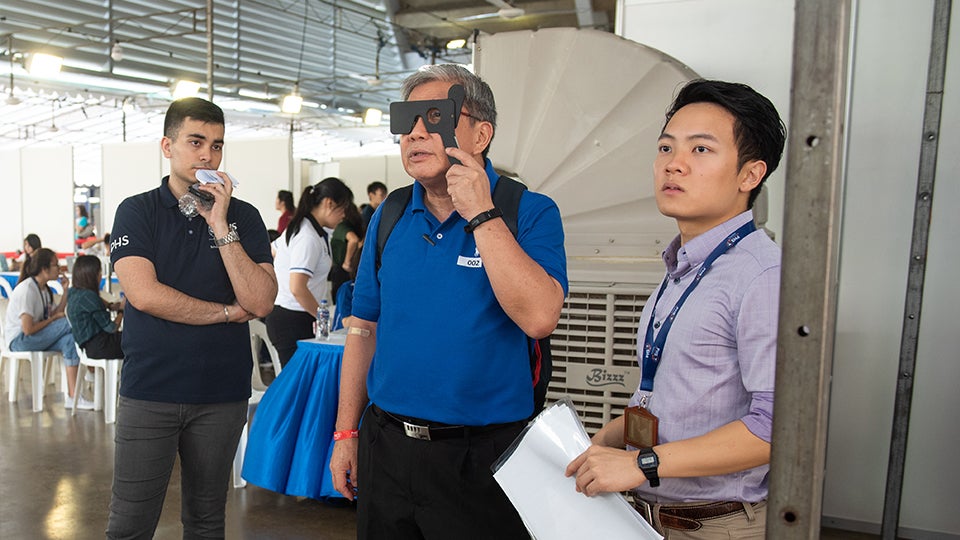
In another first for PHS, the Agency for Integrated Care (AIC) came on board as a partner to provide social support for residents in need of financial aid, caregiver help and other services.
Additionally, polytechnics also joined PHS 2019 as part of the Young Health Ambassadors’ Programme (YHAP). The programme was launched in 2015 with the aim of promoting health education to students who would in turn become health ambassadors and advocate healthy living. Besides students from junior colleges and secondary schools, the programme has reached out to Polytechnic students enrolled in healthcare-related courses for the first time this year.
As part of PHS 2019, the students showcased an exhibition on metabolic syndrome and healthy ageing to enhance public awareness and understanding of these topics. YHAP has reached out to over 5,500 students through talks, with an increase of about 80 student ambassadors since last year, bringing the total number of student ambassadors to 143.
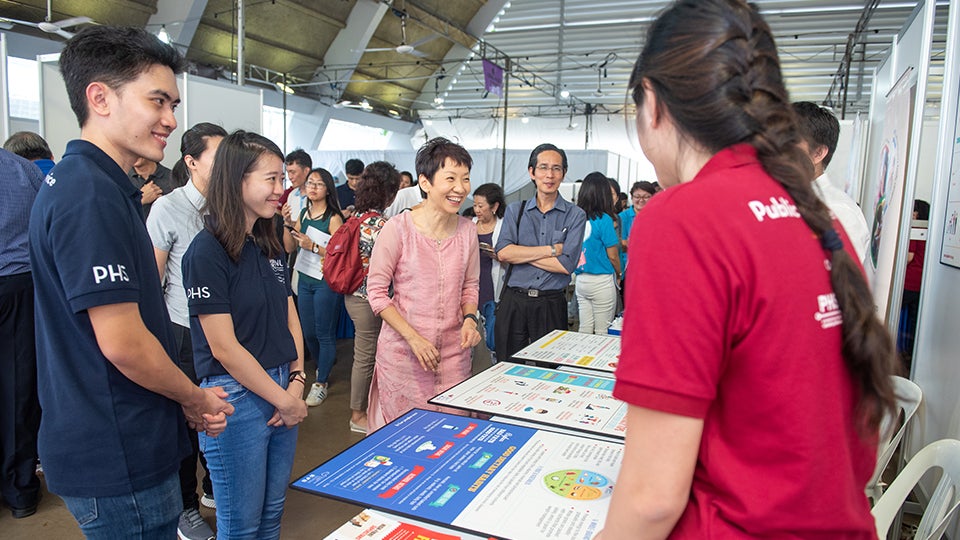
Over the 14 years of its run, PHS has expanded its scope to include more than 10 screening modalities. PHS employs primary and secondary prevention strategies which complement government initiatives to reinforce positive health behaviors and raise awareness of caring for one’s own health through health education programmes.
Mr Lee Yong Qin, Project Director of PHS and NUS Medicine Year 3 student said, “PHS has grown from strength to strength over the years. Through our group of dedicated student volunteers, we aim to reach out to residents who live in 1 to 4-room flats, and rental blocks units. This year’s topic is Metabolic Syndrome, which focuses on a cluster of risk factors that may increase the likelihood of having heart diseases and diabetes. We also want to actively encourage and educate residents to take a more active approach of one’s healthcare.”
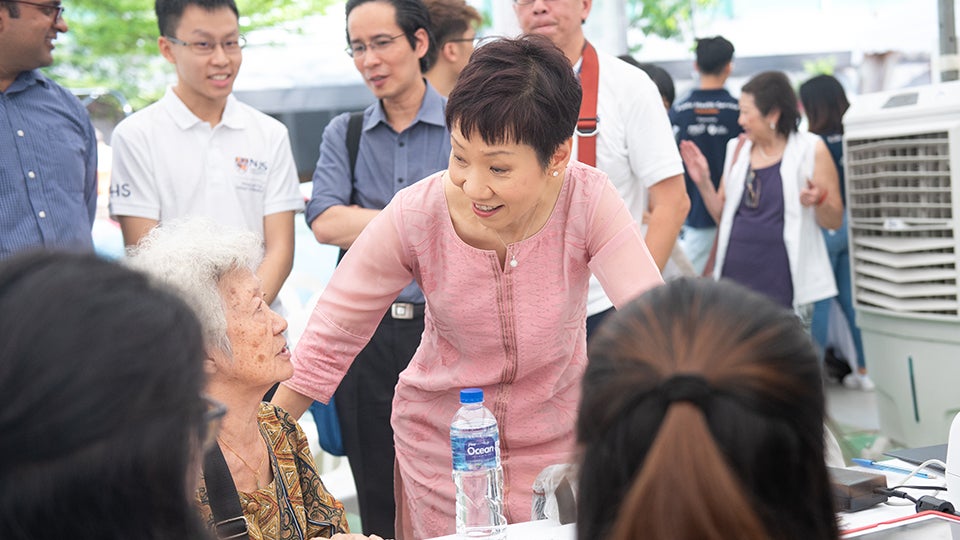
“I’m very heartened to see our future doctors, nurses and allied health professionals come together to serve the local community with their respective competencies.” – Ms Grace Fu, Culture, Community and Youth Minister
Minister Grace Fu added, “The partnership between PHS, healthcare providers and community groups is a clear illustration of how we can be elderly centric and bring care effectively to the community. With good planning and coordination, we can wrap the services around the elderly so that they enjoy the maximum health benefits at minimum hassle, without extensive to and within the hospital.”
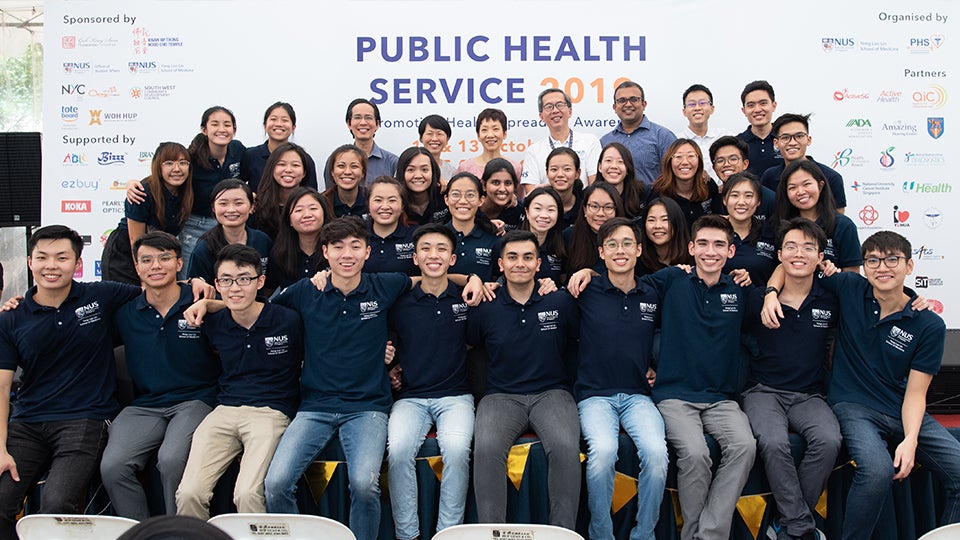
Beyond health screenings, the PHS aims to serve as a platform for healthcare institutions to come together. The event also brought an estimated 780 student volunteers from different healthcare-associated courses (NUS Medicine, NUS Nursing, NUS Pharmacy, NUS Social Work; NTU Medicine; SIT Physiotherapy; Duke-NUS Medicine; and JC students), as well as over 150 external volunteers from various partner organisations together to provide the necessary support for the smooth running of PHS 2019.
News Coverage







